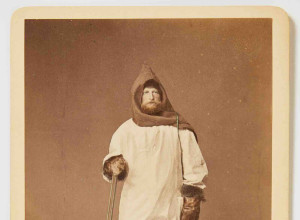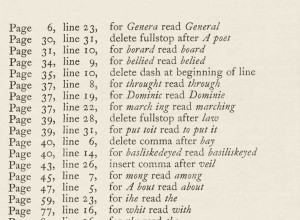The Old Turk's Load: An Interview with Gregory Gibson about his First Novel
Gregory Gibson is the proprietor of Ten Pound Island Book Company, an ABAA firm based in Gloucester, Mass. He is also the author of three books of non-fiction and, as of earlier this year, a crime novel entitled "The Old Turk's Load." We recently caught up with Gibson about his new novel over e-mail:
Tell us a bit about "The Old Turk's Load;" how you came to write it and what it's about.
I started the book when I was in the Navy, in 1969. In its first iteration it was 18 1/2 single spaced pages. My sailor buddies liked it, so I kept working on it. Almost got it published by Pyramid, a big pulp house, in the 1970s. But they informed me the world was not ready, and probably never would be, for an alcoholic detective hero. I wrote and published other, non-fiction works, but kept going back to the detective novel and trying to make it viable. Finally I had most of the parts in place, and it was like, "OK. I've gotta do this before I die." And I finished it. Then I issued it myself as a pseudo pulp, with lurid cover art, yellowed paper, and cramped typesetting, etc., and sent it to friends for Christmas. Otto Penzler of the legendary Mysterious Press read it, liked it, and bought it. He asked me if I had another one. I said, "Yeah. It'll be ready in forty years."
What authors are your influences? And do you collect any of them?
Hammett, Chandler, and James M. Cain ("Mildred Pierce" might be the perfect novel), of course. Also Frederick Exley, Elmore Leonard (especially dig his Westerns!), John Collier, Flann O'Brien, Joseph Mitchell, A. J. Liebling, Nick Tosches, Charles Olson, John Berryman, "Richard Stark," and many, many others. I own copies of many of their works, but I do not, in any other sense, "collect" any books except reference books - the tools of my trade. Being an antiquarian book dealer, I feel I'd be in competition with myself if I collected the stuff I'm trying so desperately to sell. Just don't have that collector's itch, I guess.
Your book jacket bio says about you that "in his imagination he inhabits an undiscovered Raymond Chandler novel somehow set in Manhattan in the Summer of Love." So, I'm curious, what's your favorite Chandler novel?
Well, that's jacket fluff for you. To be honest, they all run together. I remember the voice more than the plots. But I guess I'd say "Farewell My Lovely" because of Anne Riordan and the red headed kid. They give Marlowe a new dimension.
Other book dealers that have written fiction tend to feature bookish detectives or bookish plots. "The Old Turk's Load" has neither. Is that a purposeful decision? Are there any tie-ins between working in the antiquarian book trade and writing a crime novel like this one?
Not much purposeful. I just don't particularly care for biblio-mysteries (with the exception of Bernie Rhodenbarr and those low lifes in Iain Sinclair's wonderful "White Chapell, Scarlet Tracings"). I think the book element tends to drag that sub-genre back to the English drawing room, a place I have little interest in. For me the big tie in between the antiquarian trade and hard boiled crime novels is life on the road. The book trade, as I practice it, involves a lot of travel, and that sometimes includes chancey motels, bars and eateries, and the (sometimes) wonderful, strange characters who inhabit them.
"The Old Turk's Load" is your first foray into fiction, after writing several non-fiction books. Did you always want to be a novelist - or was it a more recent decision?
I have always admired Hammett, Chandler, and James M. Cain, and writing an homage was the best way I could find to express my admiration. Maybe I could find a way to express that admiration again, I don't know... I tend to think of myself as a writer - a story teller - rather than a "novelist." Memoir and non-fiction serve that story telling function just as well, and in some respects they do a better job at it.
Stewart O'Nan described "The Old Turk's Load" as a "neo-noir that just zips along." Noir is a sub-genre that I really enjoy, but tends to evade definition. What does noir mean to you? Would you describe "The Old Turk's Load" as noir?
I like "neo-noir," a term I never noticed before I started reading my own reviews. Sounds like we're inventing something interesting, doesn't it? But seriously, life is hard, and bad stuff happens, and the reasons are always more complex than we would wish. When we speak of these matters in a frank, energetic, colloquial manner, we sound "hardboiled." I think this is a distinctily American address, and I find it uniquely suited for talking about life in today's world. So, yeah. I hope the Turk is noir, and hardboiled, too.
So, what's next? Are you working on another novel? Another non-fiction book?
For the past three years I've been working on a book about a remarkable American character called John Ledyard. (You can look him up.) The book involves an old man known as "I" on a long walk, retracing one of Ledyard's earliest journeys, thinking about America then and America now, and where "I" fits in all this. It's a non-fiction novelistic memoir. So there you are.
















